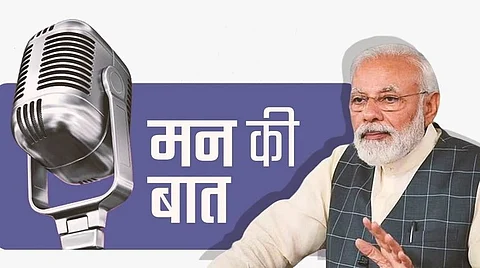

In the 123rd episode of his monthly radio broadcast, Mann Ki Baat, aired on June 29, 2025, Prime Minister Narendra Modi showcased the remarkable achievements of women-led businesses in Kalaburagi, Karnataka, and Bhadrachalam, Telangana. He underscored their vital roles in advancing the "Women-Led Development" initiative and fostering both economic and cultural progress in India.
Kalaburagi Jowar Roti - A Success Story
Women in Kalaburagi, Karnataka, have revolutionized the traditional jowar (sorghum) roti by branding it through a cooperative model under the Atmanirbhar Bharat (Self-Reliant India) program. This cooperative now produces over 3,000 jowar rotis daily, extending their reach beyond local villages to major urban markets, including Bengaluru and various online food platforms. The initiative has provided employment to about 1,000 women, enhancing both their income and self-esteem. Modi praised these women for transforming a simple culinary skill into a beacon of self-sufficiency and economic empowerment, stating, "The achievement of the women of Kalaburgi in Karnataka is remarkable. They have turned jowar roti into a brand... This is not merely a culinary tale; it is a narrative of increased incomes and empowered lives." He highlighted the expansion of their market presence, mentioning a dedicated counter in Bengaluru and the surge in online orders for Kalaburagi’s jowar rotis.
Bhadrachalam Millet Magic - A Story of Empowerment
In Bhadrachalam, Telangana, tribal women associated with the Sri Bhadradri Sri Rama Joint Liability Group (Self-Help Group registered as an MSME) have shifted from daily wage laborers to entrepreneurs. They create millet-based biscuits branded as Bhadradri Millet Magic and eco-friendly Giri Sanitary Pads. These biscuits, made from millets known as Shree Anna, are sold from Hyderabad to international markets, reaching places as far as London. Additionally, the group produced 40,000 sanitary pads in just three months, providing them at an affordable rate of Rs 28 per pack to schools and offices, and previously delivered 50,000 sanitary napkins in the same time frame, generating annual revenue of Rs 20 lakh.
The Integrated Tribal Development Agency (ITDA) Bhadrachalam, under the leadership of Project Officer B. Rahul, offered essential support, including a two-day training program in Hyderabad for millet-based cookie production. The group showcased their products at local venues such as the Srirama Temple and the tribal museum, gaining further recognition after presenting their offerings at Rashtrapati Bhavan, where President Droupadi Murmu commended the quality of their goods.
This initiative has contributed to sustainable livelihoods, encouraged healthy eating through millet-based products, and economically empowered tribal women. Plans for additional training in branding, packaging, and marketing with CSR backing are in progress.
PM Modi lauded the women's journey, stating, “You will feel proud knowing the success story of the women of Bhadrachalam. These women, who once worked as labourers, are now producing shree Anna biscuits—Bhadradri Millet Magic—which are being sold from Hyderabad to London.” He also emphasized their role in the sanitary pad sector, highlighting their efforts toward affordability and accessibility. The local tribal community expressed pride in this recognition, with one group member thanking the ITDA for its support, saying, “PM Modi spoke about us, and we feel truly proud... If we receive more support like this, we will reach even greater heights.”
Women-Led Development - A New Future
PM Modi reiterated that these initiatives embody the wider Women-Led Development vision, which is paving the way for India’s future by empowering women to spearhead social and economic transformation. These enterprises not only celebrate regional culinary traditions—such as jowar rotis and millet-based products—but also promote innovation and market growth. The Prime Minister’s recognition has elevated the visibility and brand value of these initiatives, with local officials and communities expressing newfound pride and optimism for future advancements. These stories highlight the transformative power of grassroots entrepreneurship, supported by training and institutional support, in contributing to India's journey toward self-reliance and enhancing its global standing.
